Celebrating Filipino Food Month: A Journey Through Heritage, Flavor, and Identity
Filipino Food Month 2025 celebrates the nation’s culinary treasures through the theme “Sarap ng Pagkaing Pilipino, Yaman ng Kasaysayan, Kultura at Pagkatao.” Led by DA, NCCA, DOT, and PCHM, the month-long fete highlights collaborative efforts to preserve dishes that embody history, culture, and identity.
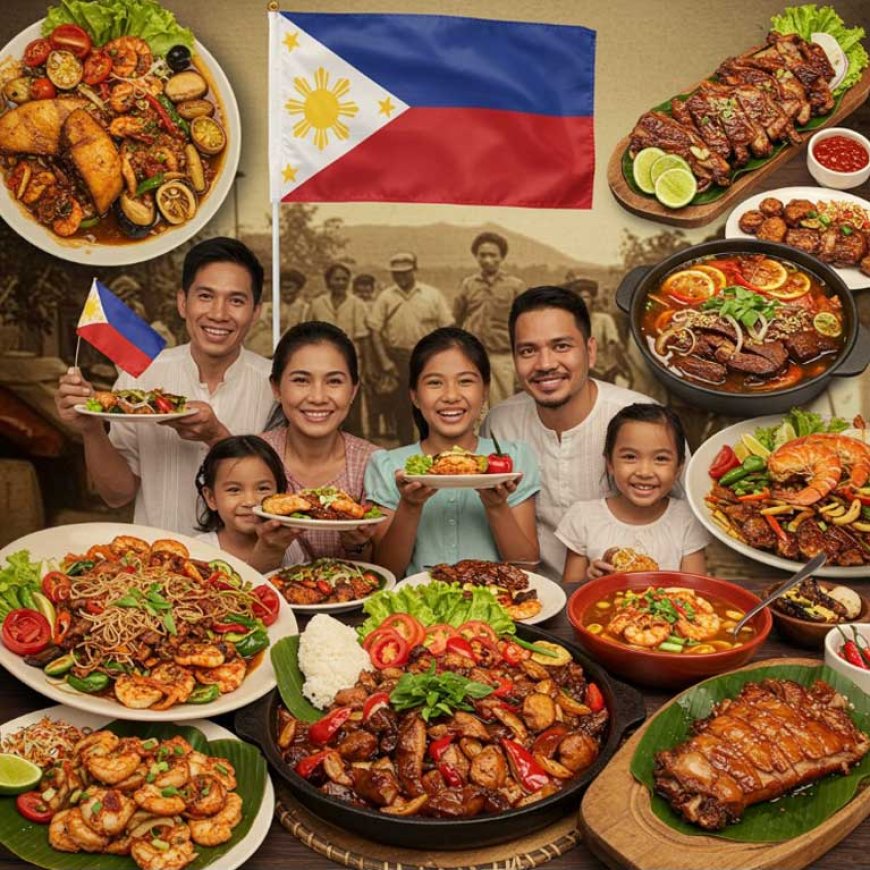
Introduction to Filipino Food Month
Every April, the Philippines transforms into a vibrant stage for its rich culinary legacy during Filipino Food Month (FFM) or Buwan ng Kalutong Filipino. Spearheaded by the Department of Agriculture (DA), National Commission for Culture and the Arts (NCCA), Department of Tourism (DOT), and the Philippine Culinary Heritage Movement (PCHM), this celebration honors the theme “Sarap ng Pagkaing Pilipino, Yaman ng Kasaysayan, Kultura at Pagkatao” (The Flavor of Filipino Food, A Wealth of History, Culture, and Humanity). FFM isn’t just about savoring dishes—it’s a nationwide movement to preserve recipes, stories, and traditions that define the Filipino identity.
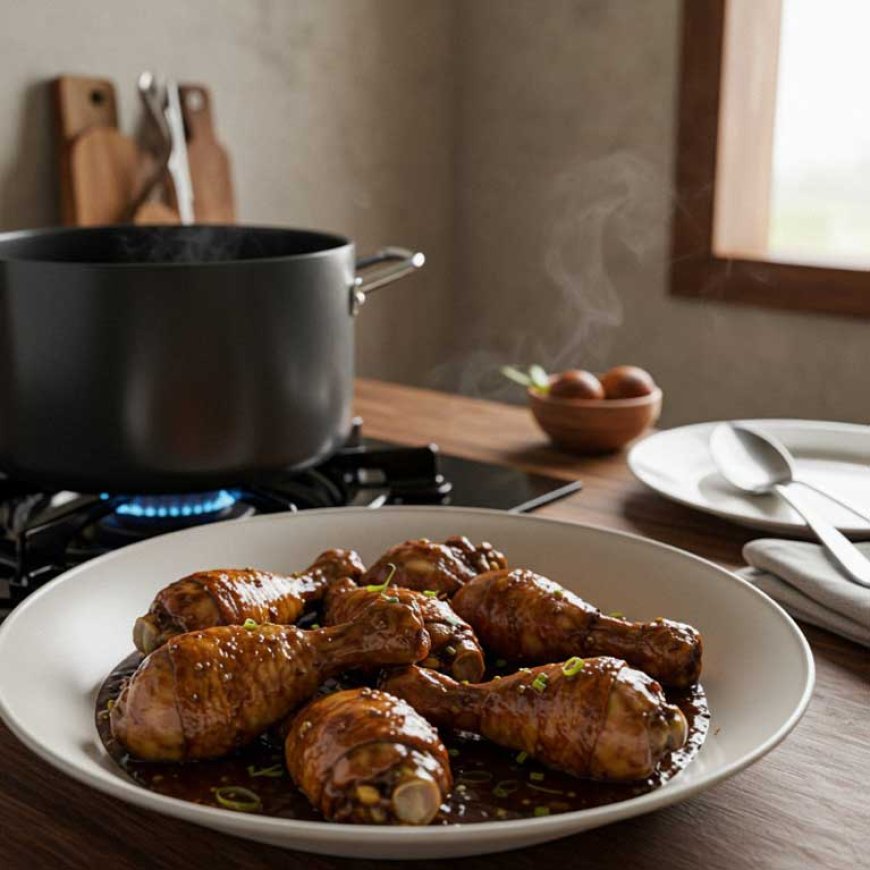
The Significance of Filipino Cuisine
Filipino food is a living chronicle of the nation’s history. Influenced by Malay, Chinese, Spanish, and American cultures, dishes like adobo, sinigang, and lechon tell tales of trade, colonization, and resilience. Each bite encapsulates centuries of adaptation, blending indigenous ingredients like coconut vinegar and calamansi with foreign techniques. Beyond sustenance, these dishes are cultural artifacts, connecting Filipinos to their ancestors and fostering pride in their roots.
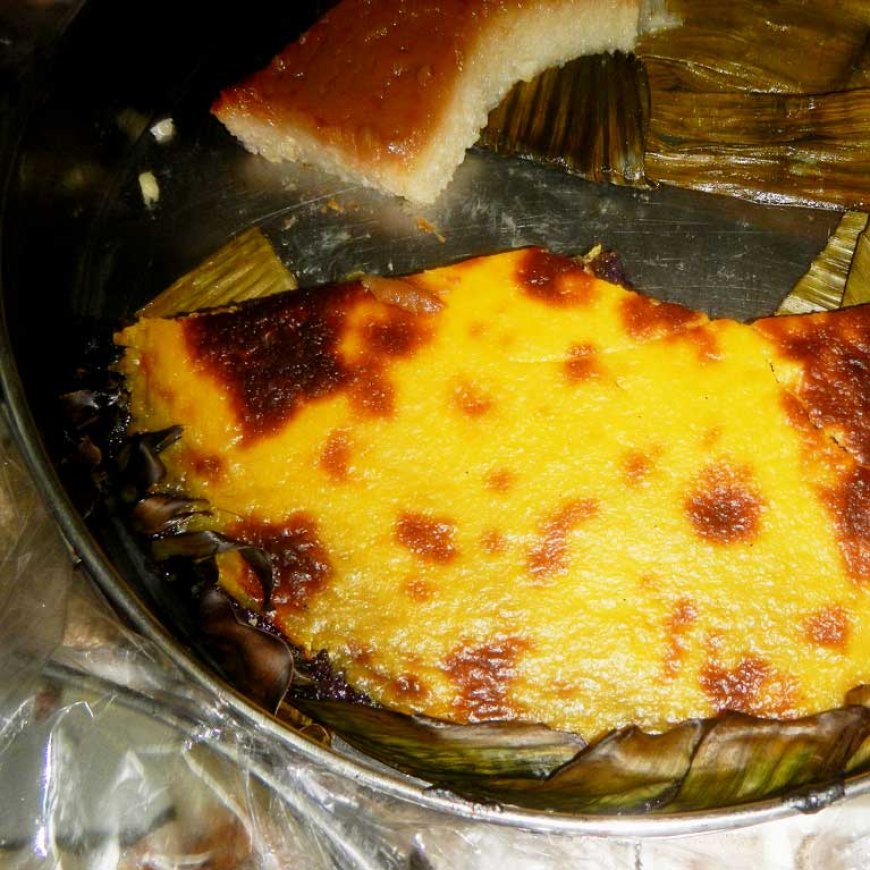
Collaborative Efforts in Celebrating FFM
The success of FFM hinges on collaboration:
- DA Philippines ensures agricultural sustainability, promoting local farmers and ingredients.
- NCCA safeguards intangible heritage, documenting oral recipes and culinary rituals.
- DOT Philippines markets food tourism, inviting travelers to taste regional specialties like Bicol Express or Ilocos empanada.
- PCHM bridges gaps between history and modernity, reviving forgotten dishes through workshops. This synergy amplifies the message that food is a collective responsibility and pride.
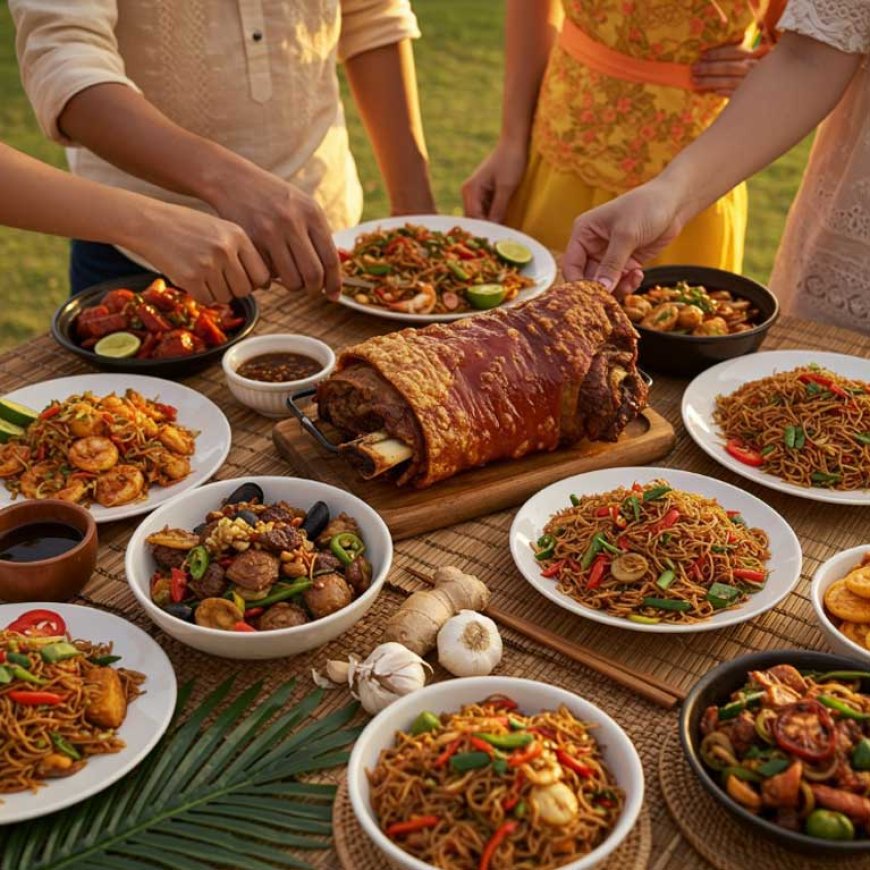
Theme Analysis: Flavor as a Cultural Treasure
The 2025 theme emphasizes that Filipino food is both sarap (delicious) and yaman (wealth). It underscores how flavors carry historical narratives—for instance, pancit symbolizes longevity from Chinese influences, while ensaymada reflects Spanish colonial baking. By framing food as “heritage,” the theme urges Filipinos to view meals as heirlooms worth protecting.
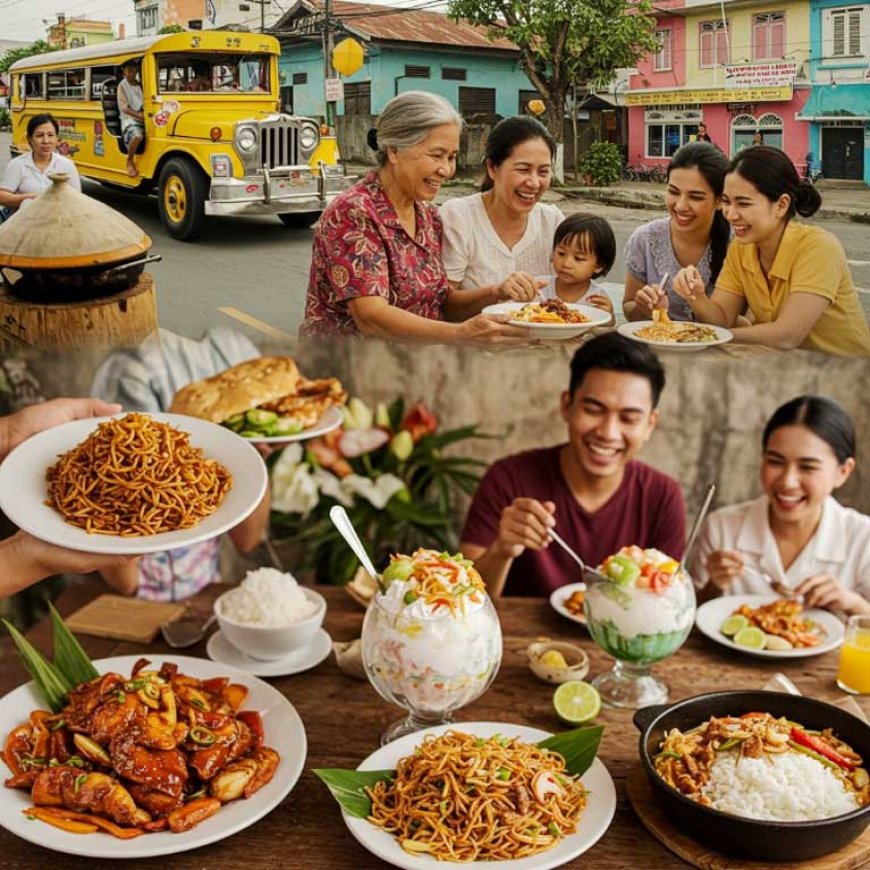
Preserving Culinary Heritage
Globalization threatens traditional diets, with fast food overshadowing homegrown flavors. FFM combats this through:
- Documentation: Recording ancestral recipes at risk of being lost.
- Education: Workshops teaching younger generations to cook kakanin (rice cakes) or ferment bagoong (shrimp paste).
- Advocacy: Pushing for UNESCO recognition of iconic dishes like adobo as intangible cultural heritage.

Filipino Food as Cultural Identity
Food is central to Filipino celebrations. A fiesta table laden with relleno, kare-kare, and halo-halo isn’t just a feast—it’s a display of community and generosity. Regional diversity also shines: Visayan kinilaw (ceviche) contrasts with Cordillera’s pinikpikan (ritual chicken dish). These variations highlight the archipelago’s biodiversity and the creativity of its people.
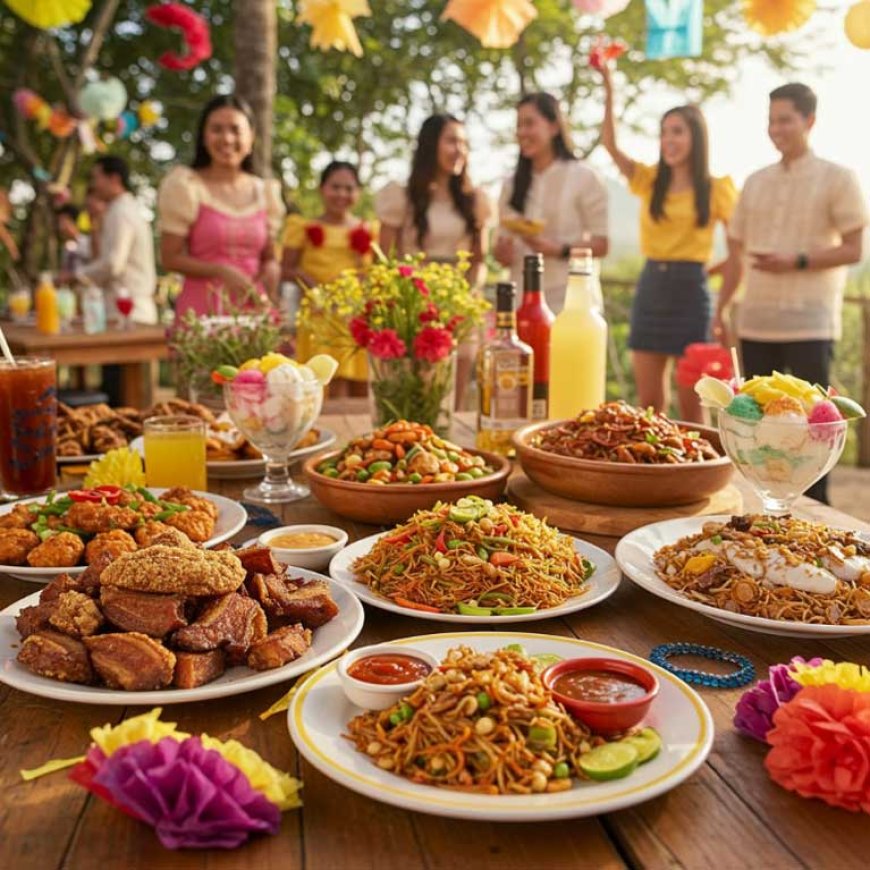
Activities and Events During FFM
FFM buzzes with activities:
- Food Festivals: Showcasing regional delicacies like Cebu lechon or Pampanga’s sisig.
- Cooking Competitions: Encouraging chefs to reinvent classics, like vegan sisig or deconstructed bibingka.
- Farm Tours: Connecting urban dwellers to sources of palay (rice) and gulay (vegetables).
- Cultural Forums: Discussing food’s role in history, such as how WWII influenced kamayan (eating with hands).
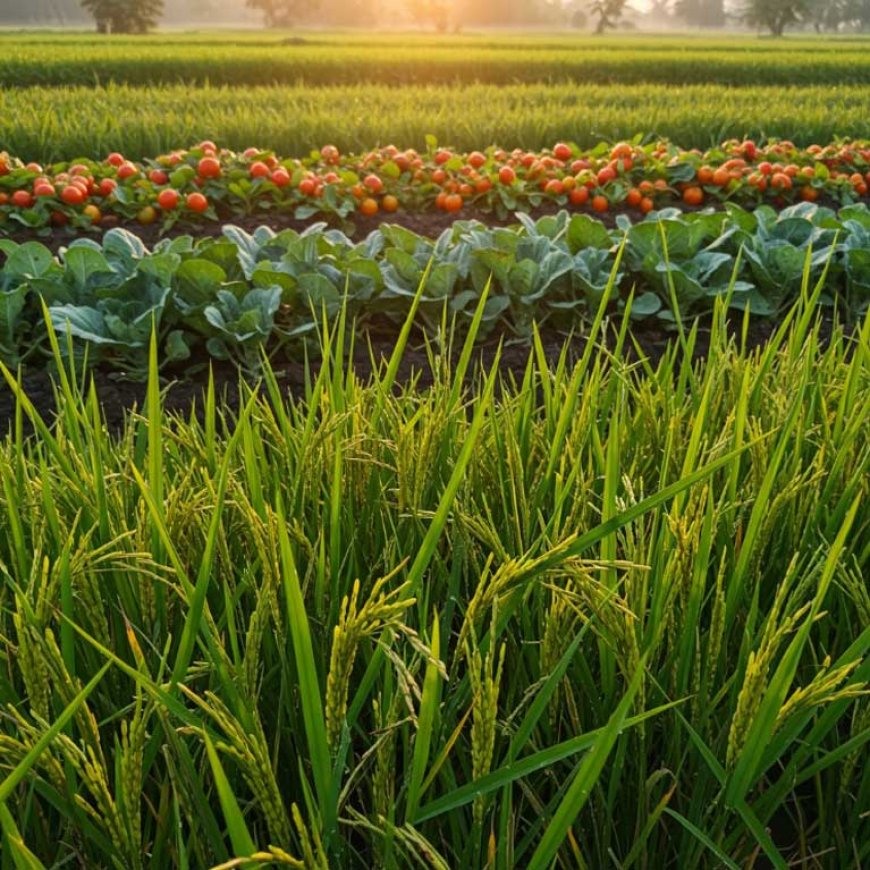
Role of Social Media and Public Engagement
Social media fuels FFM’s reach. Hashtags like #FilipinoFoodMonth and #SarapNgPilipino trend as food bloggers share recipes of batchoy or turon. Followers of DA, NCCA, DOT, and PCHM’s pages get updates on virtual cooking demos or heritage tours. This digital engagement democratizes preservation, letting overseas Filipinos join via online lutuan (cooking sessions).
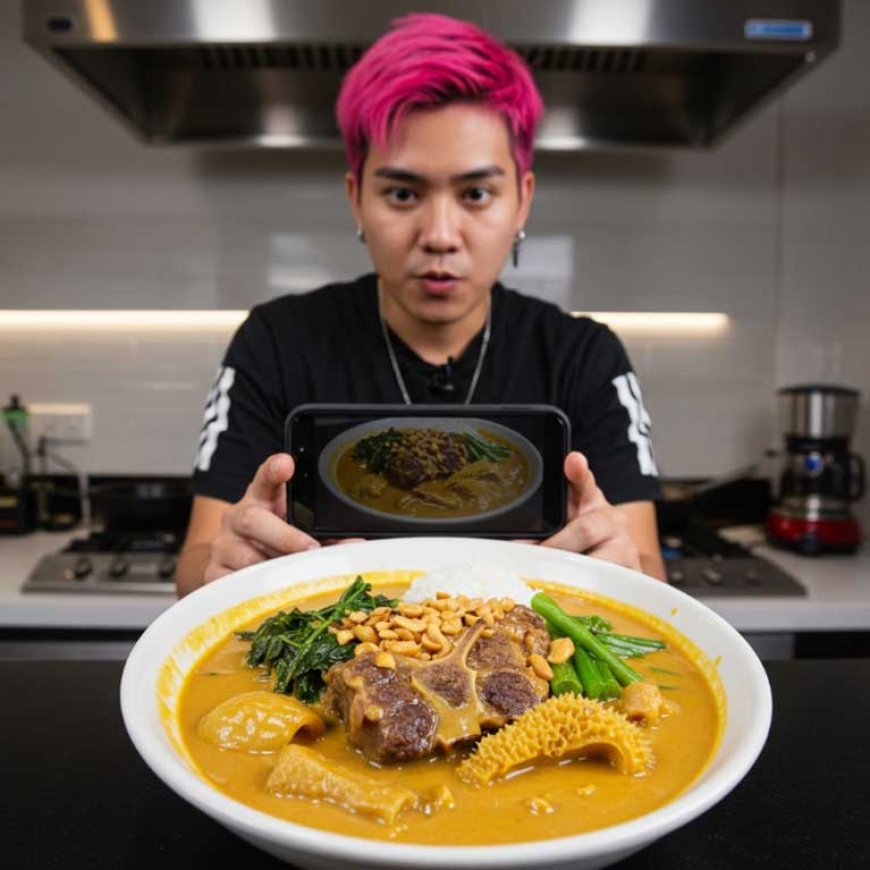
The Future of Filipino Culinary Heritage
FFM’s legacy lies in sustainability. Initiatives like school-based lutuan clubs or TikTok challenges for palitaw recipes engage Gen Z. Partnerships with global chefs to feature sinigang in international menus also elevate Philippine cuisine. The goal? Ensure that pinakbet isn’t just a dish but a legacy passed on for generations.
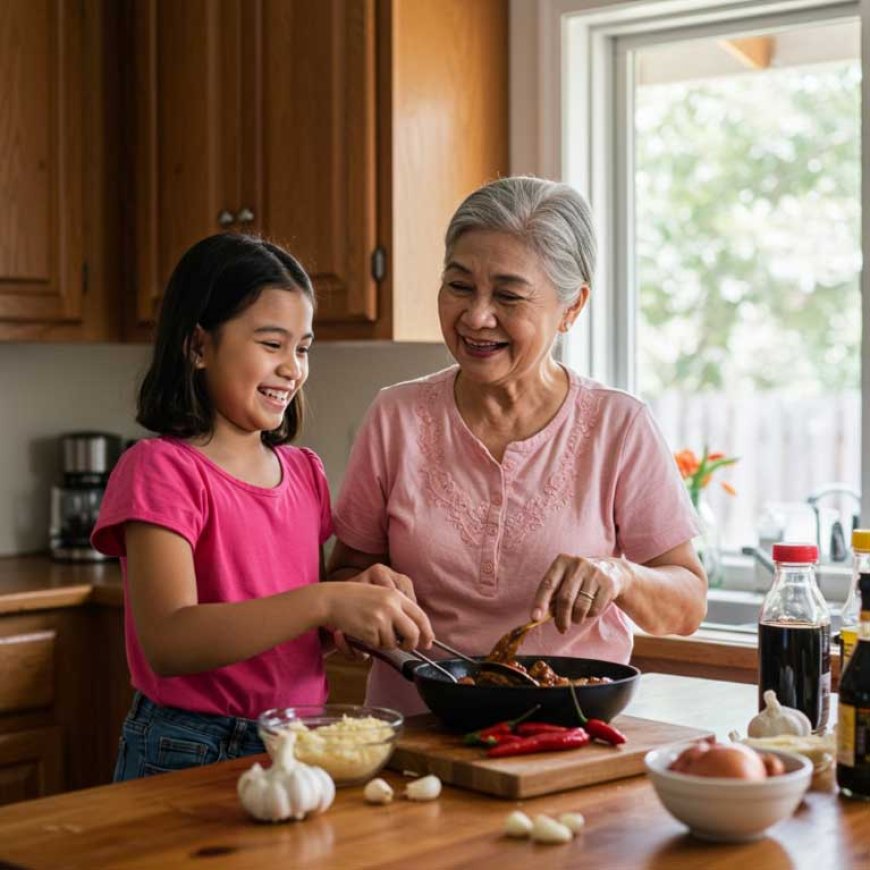
Nipino.com is committed to providing you with accurate and genuine content. Let us know your opinion by clicking HERE.






























































